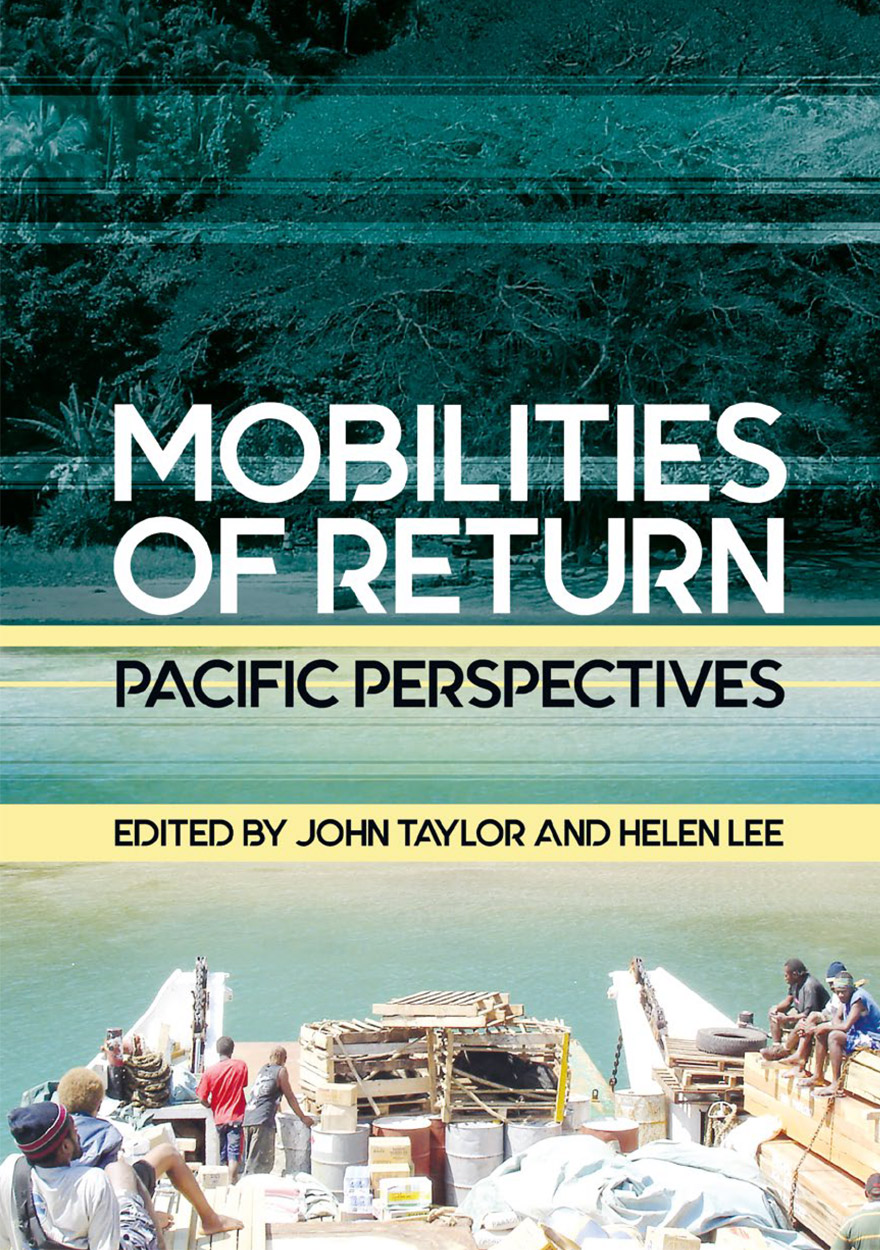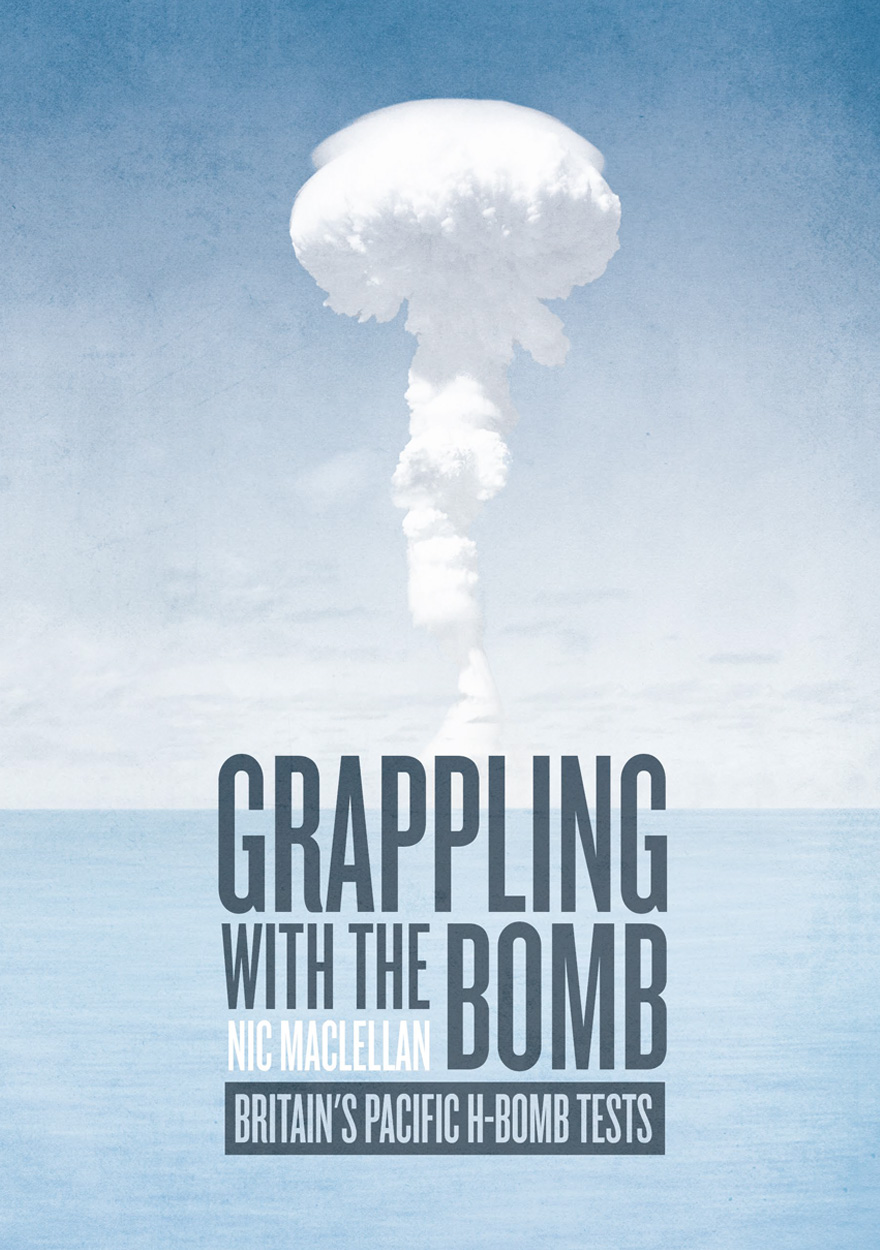Search titles
Displaying results 1 to 4 of 4.

Mobilities of Return »
Pacific Perspectives
Edited by: John Taylor, Helen Lee
Publication date: December 2017
In recent decades, the term ‘mobility’ has emerged as a defining paradigm within the humanities. For scholars engaged in the multidisciplinary topics and perspectives now often embraced by the term Pacific Studies, it has been a much more longstanding and persistent concern. Even so, specific questions regarding ‘mobilities of return’—that is, the movement of people ‘back’ to places that are designated, however ambiguously or ambivalently, as ‘home’—have tended to take a back seat within more recent discussions of mobility, transnationalism and migration.
This volume situates return mobility as a starting point for understanding the broader context and experience of human mobility, community and identity in the Pacific region and beyond. Through diverse case studies spanning the Pacific region, it demonstrates the extent to which the prospect and practice of returning home, or of navigating returns between multiple homes, is a central rather than peripheral component of contemporary Pacific Islander mobilities and identities everywhere.

Grappling with the Bomb »
Britain’s Pacific H-bomb tests
Authored by: Nic Maclellan
Publication date: September 2017
Grappling with the Bomb is a history of Britain’s 1950s program to test the hydrogen bomb, code name Operation Grapple. In 1957–58, nine atmospheric nuclear tests were held at Malden Island and Christmas Island—today, part of the Pacific nation of Kiribati. Nearly 14,000 troops travelled to the central Pacific for the UK nuclear testing program—many are still living with the health and environmental consequences.
Based on archival research and interviews with nuclear survivors, Grappling with the Bomb presents i-Kiribati woman Sui Kiritome, British pacifist Harold Steele, businessman James Burns, Fijian sailor Paul Ah Poy, English volunteers Mary and Billie Burgess and many other witnesses to Britain’s nuclear folly.

Migration and Transnationalism »
Pacific Perspectives
Edited by: Helen Lee, Steve Tupai Francis
Publication date: August 2009
Pacific Islanders have engaged in transnational practices since their first settlement of the many islands in the region. As they moved beyond the Pacific and settled in nations such as New Zealand, the U.S. and Australia these practices intensified and over time have profoundly shaped both home and diasporic communities. This edited volume begins with a detailed account of this history and the key issues in Pacific migration and transnationalism today. The papers that follow present a range of case studies that maintain this focus on both historical and contemporary perspectives. Each of the contributors goes beyond a narrowly economic focus to present the human face of migration and transnationalism; exploring questions of cultural values and identity, transformations in kinship, intergenerational change and the impact on home communities.
Pacific migration and transnationalism are addressed in this volume in the context of increasing globalisation and growing concerns about the future social, political and economic security of the Pacific region. As the case studies presented here show, the future of the Pacific depends in many ways on the ties diasporic Islanders maintain with their homelands.

Capturing Wealth from Tuna »
Case Studies from the Pacific
Authored by: Kate Barclay, Ian Cartwright
Publication date: January 2008
The Western and Central Pacific Ocean is home to the largest tuna fishery in the world – around half of the world’s tuna supply – and is a vital economic resource for Pacific island countries.
The potential of the Pacific tuna fishery to contribute to economic development in the Pacific island countries is enormous, but will require a cooperative regional strategy to maximise access fees from distant water fishing nations, as well as targeted domestic policy and legislation to encourage local fishing industries. Together with the importance of acting strategically with regard to such a variable resource, the lesson of fisheries management globally is that it is most effective when it takes into consideration social, cultural and political contexts.
Based on an extensive study of six Pacific island states, Capturing Wealth from Tuna maps out the aspirations and limitations of six Pacific island countries and proposes strategies for capturing more wealth from this resource in a sustainable and socially equitable manner.



